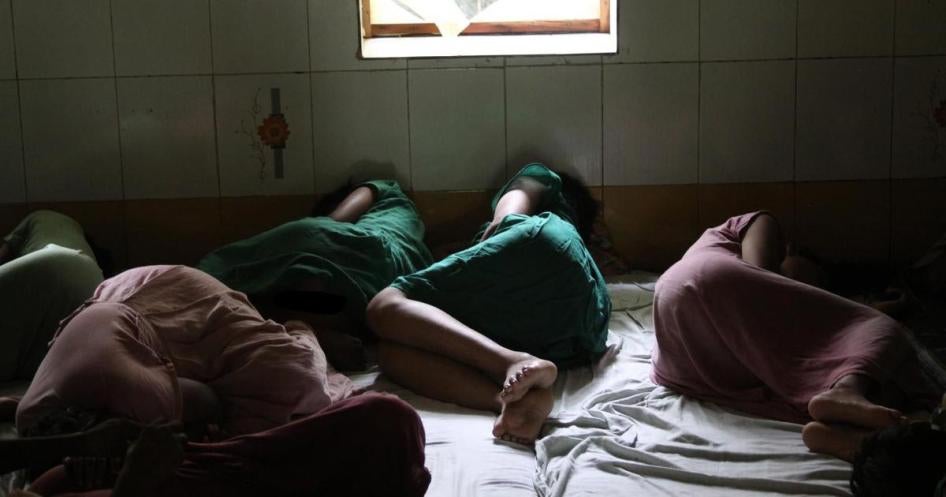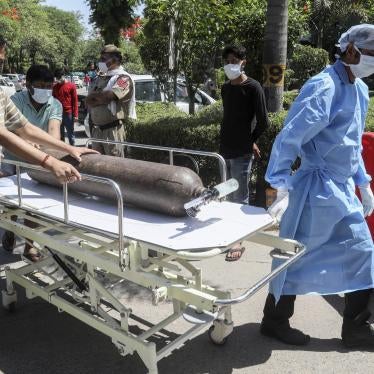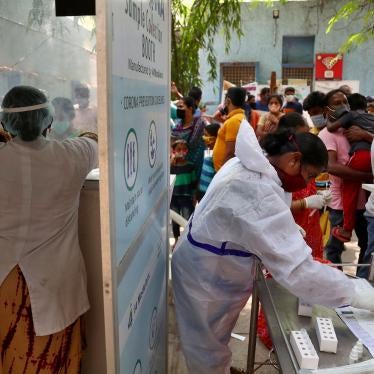I vividly remember the first time visited a mental hospital in Mumbai. In one room, dozens of people lay on the dirty floor, the stench of urine overpowering the air. The women wore shabby green uniforms, their heads shaved because of the rampant lice. Once they are locked up, their lives are often dominated by isolation, physical violence, forced treatment and verbal abuse, with no hope of escape.
As the pandemic raged across India, I kept wondering how the people with disabilities, in such a context, could have practiced physical distancing? How many people died of Covid-19 behind these closed doors? Did anyone get vaccinated? Many questions about the situation of people in mental hospitals and institutions across the country remain unanswered.
Court’s order
On September 1, the Supreme Court expressed “serious concern” about human rights violations in these institutions and ordered states in India to make Covid-19 vaccinations available to everyone detained in a mental health facility and to the staff. By October 15, hospital authorities need to submit a progress report to the Ministry of Social Justice and Empowerment explaining the steps they have taken, including the number of people vaccinated. The ruling also specifically recognizes that the rights of people with disabilities in these institutions are being violated and calls on the ministry to monitor state-run institutions more closely.
This is a significant victory for people with disabilities and advocates pushing for an end to abusive practices in mental hospitals and for equal access to health care in India.
The Supreme Court also called for the government to set up a dashboard tallying the number of people with psychosocial disabilities (mental health conditions) in each hospital, including those who remain confined in these institutions despite being ready for discharge. According to the government, as many as 10,000 people may be in this state of limbo. The Supreme Court has mandated the government to set up halfway homes or residential care for them and tasked the ministry with monitoring progress.
The key to real progress is how these court orders will be carried out. Simply reincarnating the massive mental hospitals by building smaller halfway homes or rehabilitation centers that perpetuate the same abuses is not a solution. Some states have just moved people to other facilities such as beggars’ homes or nursing homes, calling them rehabilitation centers, but these places are no better.
Humane approach needed
I visited some of these halfway homes in Karnataka some years ago. The staff openly shared that they hold down women and girls with psychosocial disabilities or forcibly open their mouths to coerce them to take medication. This is not the humane way forward.
State governments need to reintegrate people with mental health conditions with their families and communities, supporting them to live independently. This means investing in a holistic approach to services, including education, housing, food and employment. In monitoring these institutions, the ministry needs to ensure that there is an end to coercive practices and that services for people with mental health conditions – including receiving Covid-19 vaccines – are given with the informed consent of the person concerned.
States also need to address the stigma associated with mental health, which is in part why many families refuse to take back family members who have been hospitalized, leaving them to languish in mental hospitals, in some cases for years.
Indian advocates expressed to me measured excitement that the Supreme Court was putting pressure on national and state governments to address abuses against people with disabilities. Advocates recognize the long road ahead in ensuring that the government takes appropriate and timely action. “The government needs to meet certain pre-conditions for de-institutionalization to be successful, including investing in community-based services,” said Bhargavi Davar, Pune-based executive director of Transforming Communities for Inclusion.
Said Gaurav Kumar Bansal, who has been at the forefront of the petitions to the Supreme Court, “We are just at the beginning of the battle for the rights of people with mental health conditions in India. And we will keep fighting, together, until one day, people with psychosocial disabilities can live in dignity.”









